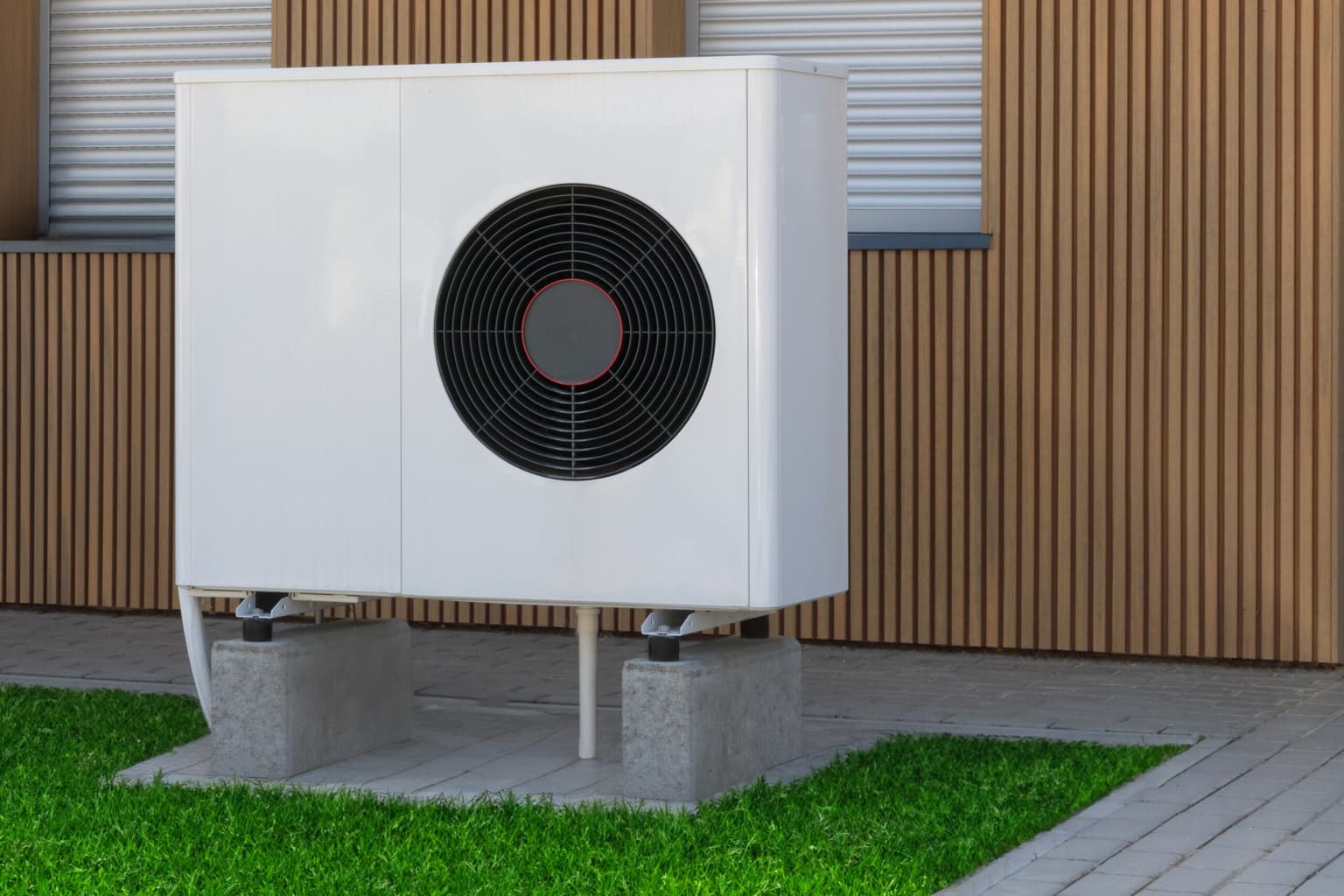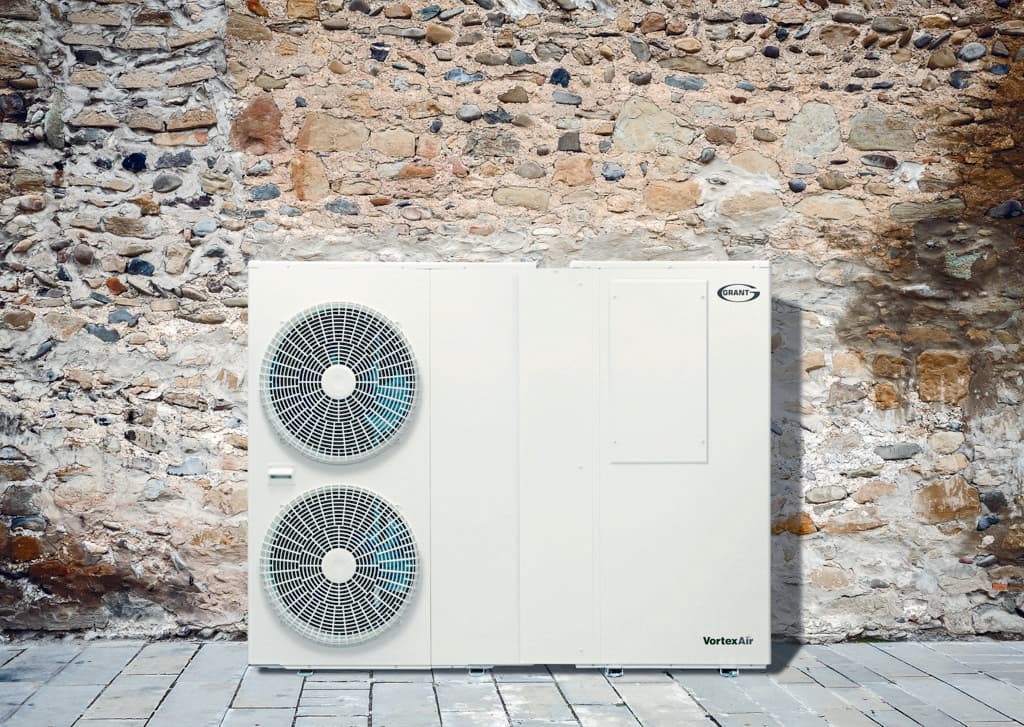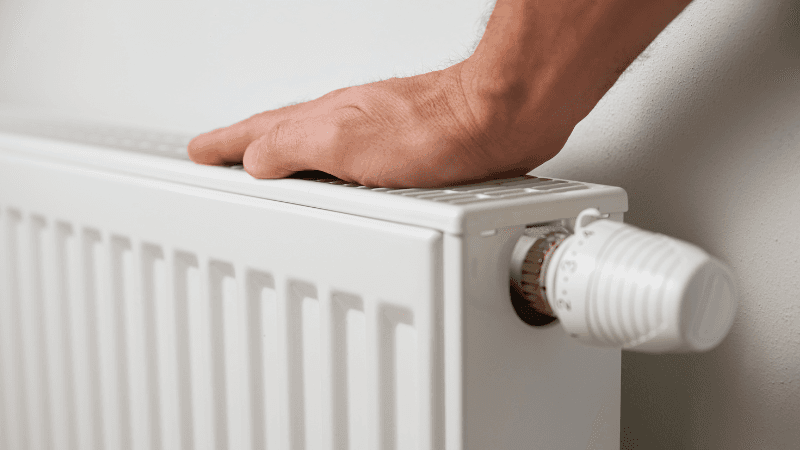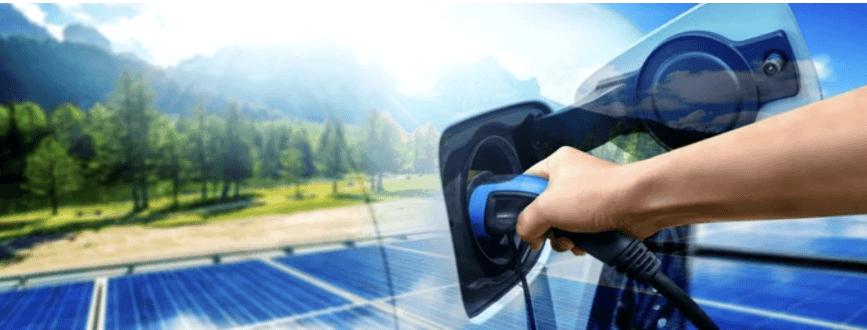Ground Source Heat Pumps VS Air Source Heat Pumps

Considering a heat pump for your home? Great choice! Here at Warmaway, we’re passionate about helping you make the best decision for your heating needs and we understand it can be difficult to know what solution is best for you. Heat pumps can be a great renewable heating solution but it’s important to have the right system for your needs to run as efficiently as possible. At Warmaway we have over 20 years experience in installing and maintaining heat pumps so in this guide, we’re going to share some of our expert knowledge and explain the differences between ground source heat pumps (GSHPs) and air source heat pumps (ASHPs). We’re here to break down the details and help you understand which option might be right for you.
Ground source heat pumps
How they work
GSHPs use the stable underground temperature to heat your home. They extract heat from the ground, through a series of buried pipes, which is then concentrated and transferred to your heating system.
How they’re installed
Installing a GSHP involves a few key steps. First, we survey your property to determine the best type of loop system—horizontal or vertical. For horizontal systems, we dig trenches about 1-2 metres deep. For vertical systems, we drill boreholes 50 to 200 metres deep. Next, we install the ground loops and connect them to the heat pump inside your home. Finally, we test the system to ensure everything runs smoothly.
Installing a GSHP usually takes about one to two weeks. The timeline includes surveying the property, digging trenches or drilling boreholes, installing the ground loops, and connecting the system to your home.
Types of properties GSHPs are suitable for
Ground source heat pumps can be installed in a variety of properties, but they do require land so they aren’t suitable for individual apartments or properties with little or no outdoor space. Installation may be more challenging in densely built urban areas or on smaller plots. At Warmaway, we assess your property’s specific conditions to determine the best installation method, ensuring efficient and effective heating tailored to your needs.
Want to know if a GSHP could be right for your property? Get in touch with us today
Pros:
- Efficiency: GSHPs are highly efficient because the ground temperature is relatively constant throughout the year.
- Savings: Because they are much more efficient than most boilers, GSHP could save you money on your energy bills.
- Longevity: GSHPs typically last between 20 to 25 years, with some systems lasting up to 50 years if well-maintained.
- Eco-friendly: They use renewable energy from the ground, reducing your carbon footprint.
Cons:
- Installation Cost: GSHPs have a higher upfront costs than ASHPs due to the extensive ground work required.
- Space Requirement: You need a large amount of outdoor space for the installation of ground loops.
Air source heat pumps
How they work
ASHPs extract heat from the outside air. Even when it’s cold outside, there is still some heat energy available, which the pump captures and transfers into your home.
How they’re installed
Installing an ASHP is a straightforward process. First, we assess your property to find the optimal location for the outdoor unit. Next, we mount the unit on an exterior wall or place it on the ground, ensuring it’s securely positioned. We then connect the ASHP to your home’s heating system and install the necessary electrical components. Finally, we thoroughly test the system to ensure it operates efficiently and effectively.
An air source heat pump installation typically takes two to three days. This involves mounting the outdoor unit, connecting it to your heating system, and ensuring everything runs smoothly.
Types of properties ASHPs are suitable for
ASHPs can be installed in most properties, including houses, apartments, and commercial buildings. They are versatile and require less space than Ground Source Heat Pumps. However, some things to consider are having sufficient outdoor space for the unit either on the ground on an external wall of your property, ensuring proper ventilation, and assessing noise levels. At Warmaway, we evaluate your specific property needs to ensure the best fit and optimal performance of your ASHP.
Want to know if an ASHP could be right for your property? Get in touch with us today
Pros:
- Versatility: Easier to install than GSHPs, requiring less outdoor space.
- Lower Cost: Generally, ASHPs have lower upfront costs compared to GSHPs.
- Minimal Disruption: Installation is typically less invasive, causing less disruption to your property.
- Year-Round Use: Can be used for both heating in the winter and cooling in the summer.
Cons:
- System Compatibility: It’s important to ensure that your existing heating system is compatible with an ASHP to avoid additional retrofitting costs.
- Noise: Some ASHPs can produce noise during operation though most modern units produce about the same level of noise as a dishwasher.
Making the right choice for your home
Choosing between a GSHP and an ASHP depends on several factors including your budget, space availability, and specific heating needs. Here at Warmaway, we have over 20 years of experience in the heat pump industry and can provide you with the expertise and guidance you need to make the best choice.
Whether you’re leaning towards a GSHP for its efficiency and longevity, or an ASHP for its versatility and lower upfront cost, we’re here to help. Our team of professional and friendly engineers will ensure that your heat pump is installed with the highest standards of quality and care. We also provide heat pump servicing and maintenance to ensure your heat pumps last.
Feel free to reach out to us at Warmaway with any questions or to schedule a consultation. We’re here to keep you warm, efficiently and sustainably!


